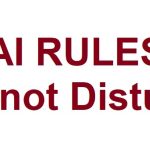New guidelines to curb unwanted business calls & messages

If you’re tired of spam business calls and messages despite activating ‘Do Not Disturb‘ (DND) mode on your phone, there’s good news.
The Consumer Affairs Ministry has released draft guidelines to tackle unsolicited business communications. Public comments are invited until July 21.
Developed with input from telecom firms and regulators, these guidelines define “business communication” as any message about goods or services. These include promotional and service messages.
However personal communication has been excluded from these. This initiative aims to protect consumers from the growing nuisance of intrusive business calls and texts.
The new guidelines will impact all individuals and entities involved in making or facilitating such communications.
According to the ministry, any business communication is considered unsolicited and unwanted if it does not adhere to the recipient’s consent or registered preferences.
Unauthorized communications include those using unregistered numbers or SMS headers, contacting recipients who have opted out, failing to obtain digital consent, not identifying the caller and purpose, and lacking an opt-out option.
These proposals also prohibit communications that violate the Telecom Regulatory Authority of India (TRAI) rules on commercial messages based on customer preferences.
While TRAI’s 2018 rules have been effective for registered telemarketers, communications from unregistered marketers using private 10-digit numbers continue to be a problem, the ministry noted.
The ministry acknowledged that the DND registry has been effective for registered telemarketers.
However, unwarranted communication from unregistered telemarketers and those using private 10-digit numbers persists.
The government is committed to safeguarding consumer interests and rights, especially in the increasingly expansive and invasive consumer space.
These draft guidelines aim to protect consumers from invasive and unauthorized marketing practices.
Key Points of the Guidelines:
- Communications must comply with the recipient’s consent or registered preferences.
- Callers must identify themselves and the purpose of the communication.
- Obtain digital consent for any communication.
- Provide an easy opt-out option for recipients.
- Adhere to TRAI rules on commercial messages based on customer preferences.
- Ban the use of unregistered numbers or SMS headers.
- These guidelines represent a significant step towards enhancing consumer protection in India.
By addressing the issue of unwanted business communications, the government aims to provide a more secure and pleasant communication environment for consumers.
Image Credit: Gregory Varnum, CC BY-SA 4.0, via Wikimedia Commons
Image Reference: https://commons.wikimedia.org/wiki/File:Cedar_Point_Please_Do_Not_Disturb_the_Operator_sign_(5542).jpg










Leave a Reply